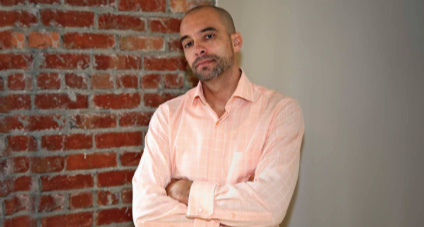Two years ago I had the privilege of meeting Jeffrey M. R. Duncan-Andrade. I was invited to take part in a tour of schools in the Bay Area. One of the schools I visited was “Roses in Concrete” in Oakland, California. Duncan-Andrade founded the school in 2015 as a result of “[His] passion for improving the lives of his students and frustration with the public education system.” The school is devoted to educating children from Oakland in all the rudimentaries of academia, but prioritizes socio-emotional learning, development, and rehabilitation in order to promote the most effective learning. Roses in Concrete strives to create a space where children who suffer through different violent traumas brought on by social inequalities attain the coping mechanisms to deal with and succeed amid the pain.
After the school’s tour, I was astounded by the genuine effort and authentic belief in socio-emotional learning as the foundation for effective learning that Jeff Duncan-Andrade displayed, so I bought his book to learn a little more about his educational philosophy. In this series of blogs, I intend to share with you some of the core educational beliefs that Duncan-Andrade shares in his book The Art of Critical Pedagogy, in hopes that this will shed light on educational inequalities and inspire you to take action.
I begin by presenting Duncan-Andrades’ first radical belief; namely, that the urban education system in America is NOT failing. At face value, I must admit, this is a ridiculous claim. Dropout rates, though decreasing, are still highest among Native, Black and Latino students. College readiness is also significantly low amongst students of color. Urban education funding is spotty, at best, there is a lack of teacher diversity, and standards-aligned teaching is demanded from classroom teachers without appropriate training. When confronted with these challenges, it is difficult to agree with Duncan-Andrade’s claim that urban education is not failing.
Nevertheless, Duncan-Andrade claims that “when one set of schools is given the resources necessary to succeed and another group of schools is not, we have predetermined winners and losers.” Within this rationale, Duncan-Andrade places urban schools amongst the predetermined losers; so “on the one hand, urban schools are producing academic failures at alarming rates; at the same time, they are doing this inside a systematic structural design that essentially predetermines its failure.” In other words, “schools are not broken; they are doing exactly what they were designed to do.” Urban schools are succeeding—they are succeeding at failing students of color.
Duncan-Andrade starts his book by redefining the concept of the “failing urban school” in order to “shake up and radicalize the business-as-usual approach to improving urban schools by shifting the blame from the victims of an unjust system onto the fiscal, political, and ideological policies that deliberately undercut and demean urban schools.” When we accept that urban schools are actually successful in fulfilling the malicious intents it was founded on, only then can we begin to have a meaningful discussion about educational reform. If you want to know the different elements of reform that Duncan-Andrade suggests we tackle in education reform, come back for the next part of this blog!
Robel Espino
Latest posts by Robel Espino (see all)
- Parte 2, Explorando las Ideas de Jeffrey Duncan-Andrade: La Política y la Economía del Fracaso - December 18, 2019
- Part 2, Exploring Jeffrey Duncan-Andrade’s Ideas:The Politics and Economics of Failure - December 16, 2019
- Explorando Las Ideas de Jeffrey Duncan-Andrade, Parte 1: El Sistema de Educación Urbana, No Está Fallando - December 3, 2019
- Exploring Jeffrey Duncan-Andrade’s Ideas, Part 1: The Urban Education System Is Not Failing - November 26, 2019
- Estudio Sugiere Que las Lecturas en el Aula No Son Muy Efectivas, Pero Mis Alumnos y Yo las Amamos - November 22, 2019


Pingback: Part 2, Exploring Jeffrey Duncan-Andrade’s Ideas:The Politics and Economics of Failure - La Comadre
Pingback: Parte 2, Explorando las Ideas de Jeffrey Duncan-Andrade: La Política y la Economía del Fracaso - La Comadre